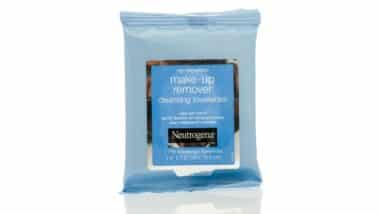C.R. Bard was hit with an IVC filter lawsuit, alleging that the implanted device caused a woman to suffer near-fatal injuries.
Plaintiffs Pharris and Billy M. of Texas are suing Bard, after Pharris had the G2 IVC filter implanted to reduce the risk of blood-clot formations, which allegedly failed.
What is a IVC Filter?
IVC (inferior vena cava) filters were first released into the medical market in the 1960s, which were meant to safely catch blood-clots forming in the patient’s lower body and prevent them from traveling up to their lungs and heart.
Previously, IVC filters only came in permanent models but temporary models were later released onto the market. Ideally, these devices would prevent high risk patients from suffering heart attacks and other cardiac complications.
IVC Filter Complications
It was not long after the device was implanted that plaintiff Pharris started experiencing severe complications. According to the IVC lawsuit, she started experiencing extreme pain and became disabled due to the defective design of the IVC filter.
The injuries indicated in the lawsuit claim that the IVC filter had perforated the vena cava and caused injury to her renal artery. After it was determined that these injuries could cause potentially fatal damage, her physicians ordered to have the device removed.
Unfortunately, it took several attempts to remove the IVC filter and was finally successful at the third try, through open surgery. Pharris is still recovering from these IVC filter complications, and has been incurring massive medical expenses.
The plaintiff couple alleges that they had only recently discovered that the temporary IVC filter models were not made as good of a quality as the permanent models, and were causing patients more harm than good.
IVC Filter Lawsuits
The FDA has recently warned patients who have any temporary IVC filters implanted, to have them removed after several weeks. Studies have shown that the temporary models break apart soon after being implemented, with some of the parts perforating through the vena cava and causing additional problems.
According to IVC lawsuits, manufacturers did not warn the medical community or patients against any IVC filter complications, nor did they provide any relevant studies.
The plaintiffs’ lawyers state that the defendants had the civil responsibility of warning their clients, and other patients of all potential side effects associated with their products. Pharris insists that she never would have used the defendant’s IVC filter, if she had known about the possible complications.
Pharris and Billy are suing C.R. Bard for being allegedly responsible for manufacturing, selling, distributing, and marketing a dangerous product. The charges include: Negligence, false advertising, concealing information, and misrepresenting a product.
The IVC Filter Lawsuit is Pharris M., and Billy M. v. C.R. Bard, Case No. 6:15-cv-00603-MHS-JDL, in the U.S. District Court of Eastern Texas.
In general, IVC filter lawsuits are filed individually by each plaintiff and are not class actions.
Do YOU have a legal claim? Fill out the form on this page now for a free, immediate, and confidential case evaluation. The attorneys who work with Top Class Actions will contact you if you qualify to let you know if an individual lawsuit or class action lawsuit is best for you. Hurry — statutes of limitations may apply.
ATTORNEY ADVERTISING
Top Class Actions is a Proud Member of the American Bar Association
LEGAL INFORMATION IS NOT LEGAL ADVICE
Top Class Actions Legal Statement
©2008 – 2025 Top Class Actions® LLC
Various Trademarks held by their respective owners
This website is not intended for viewing or usage by European Union citizens.
Get Help – It’s Free
Join a Free IVC Filter Class Action Lawsuit Investigation
If you or a loved one were injured by IVC filter complications, you may have a legal claim. See if you qualify to pursue compensation and join a free IVC filter class action lawsuit investigation by submitting your information for a free case evaluation.
An attorney will contact you if you qualify to discuss the details of your potential case.
Oops! We could not locate your form.













